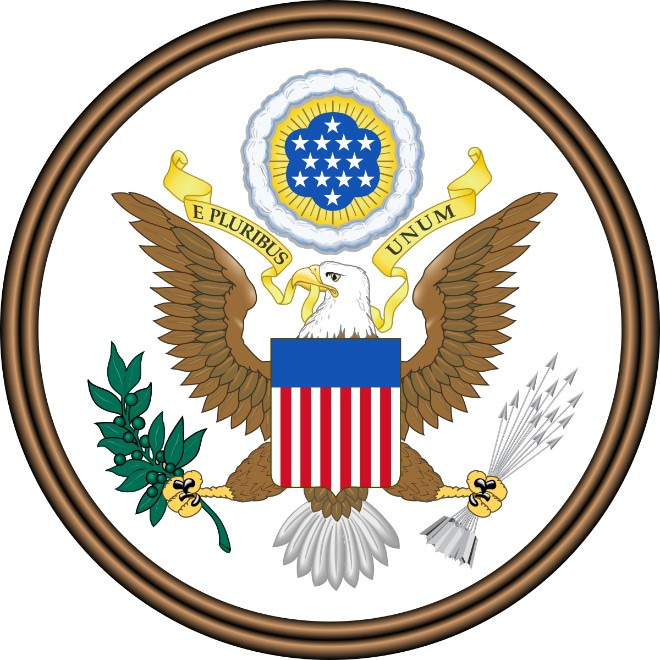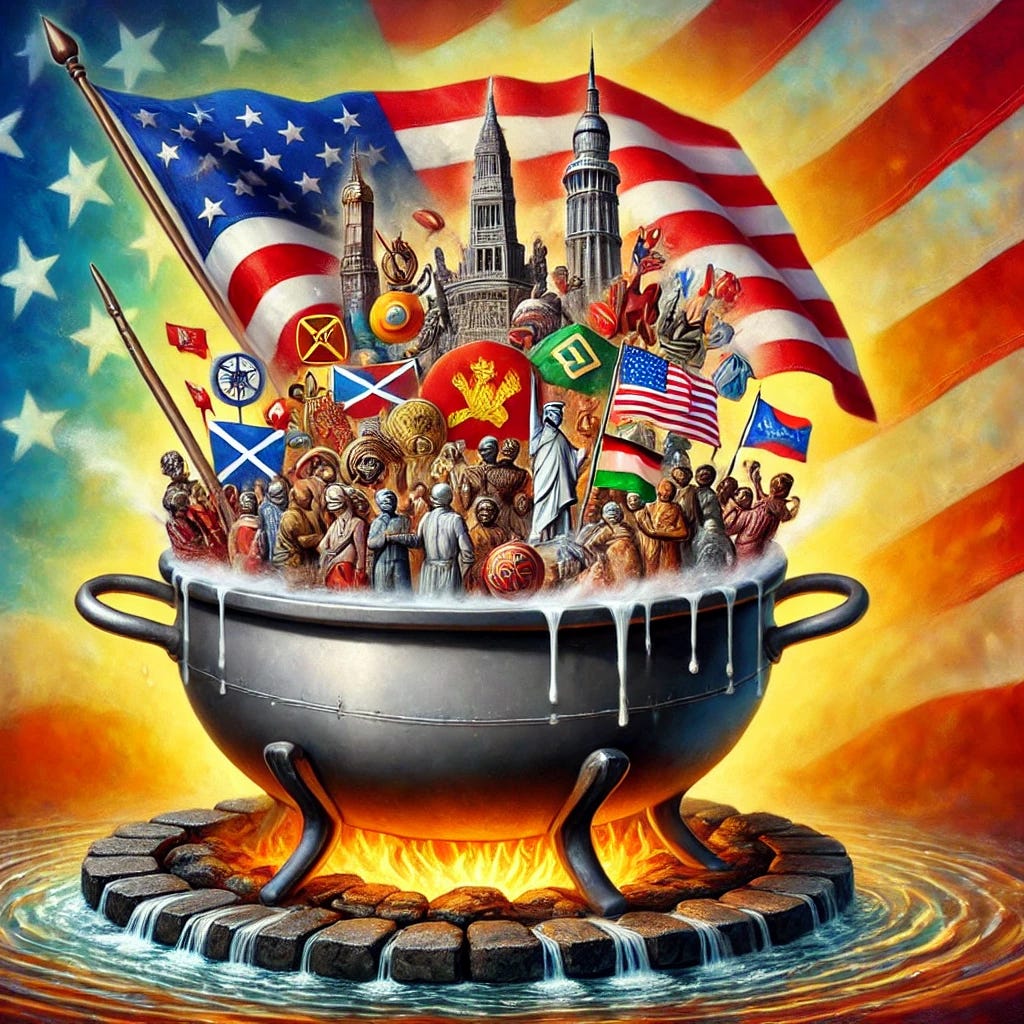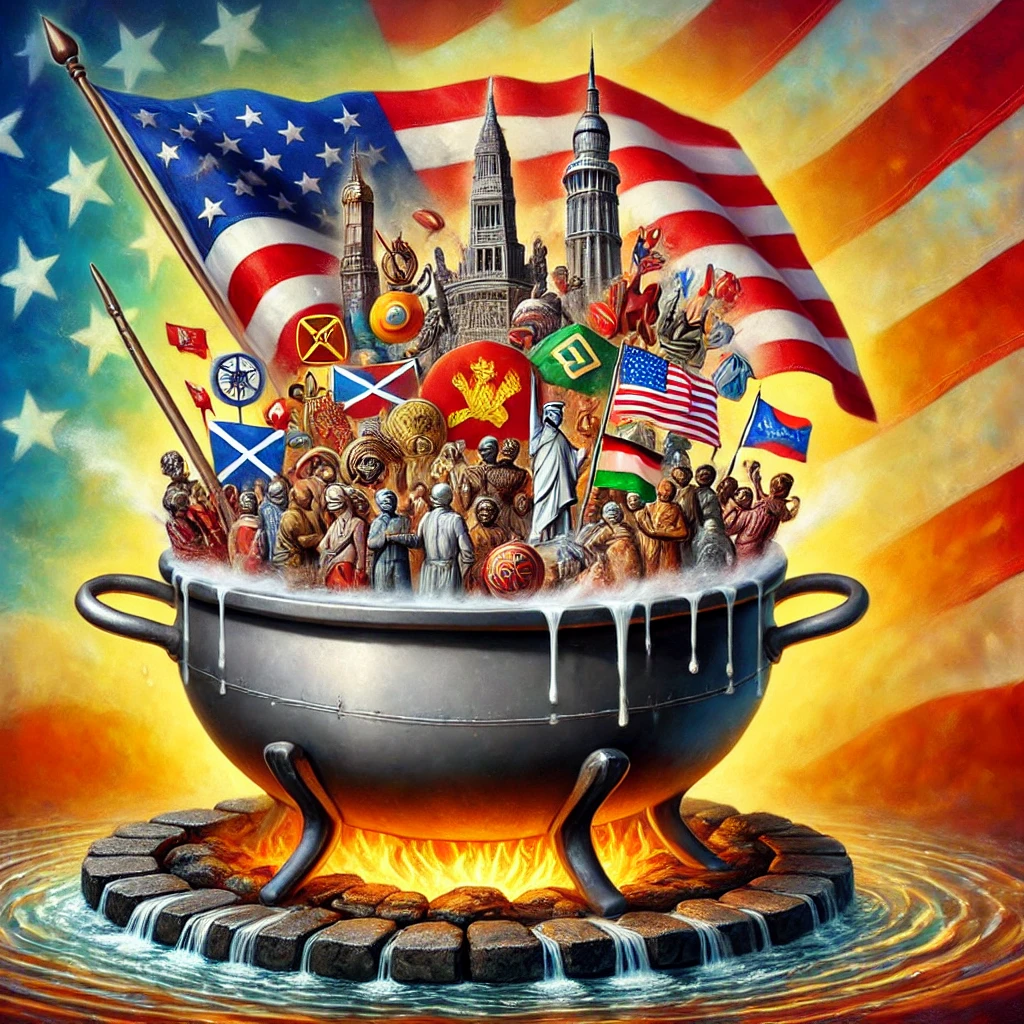Has the meaning of E Pluribus Unum been lost in today’s immigration chaos? Explore how identity politics and border issues threaten America’s founding principles.

By Steve Bakke
“The United States is a nation of immigrants.”
“Immigration is a foundation of our country.”
Those noble claims come to us from prior generations of Americans. Soon after our nation’s founding, “E Pluribus Unum” appeared on the Great Seal of the United States. That phrase, translated from Latin as “one from many,” embodied those noble claims. It quickly became a de facto American motto and was first used on U.S. coinage in 1795. It now appears on all U.S. coins.
The 2024 presidential election campaign has identified border control and immigration policies as priority voter concerns. The open border chaos we have been experiencing flies in the face of those historic ideals.
Has “E Pluribus Unum” become a mere fantasy? Must it be relegated to a footnote in history books? I hope not, but times have changed, and identity politics has become dominant with its emphasis on differences. In particular, there seems to be a trend toward immigrants maintaining separateness.

This quasi-segregation has diminished the tradition of assimilation by rejecting its underlying objective embodied in “one from many.” Our leaders have increasingly ignored the value of maintaining some minimum level of national identity.
The chaos of uncontrolled borders and illegal immigration isn’t compatible with any constructive integration of immigrants. The very nature of what we’ve experienced over the past 3½ years assures failure of the assimilation process and the rule of law. The essence of E Pluribus Unum assumes mutual tolerance, but we’ve evolved into overdone political correctness and mutual intolerance.
Let’s look at what assimilation represents and what’s required. What has to happen for current citizens and immigrants to merge successfully? Assimilation does not require immigrants to mimic or imitate Americans. It doesn’t require giving up one’s religion. It’s not a means of subordinating newcomers to existing citizens. And it’s not the same as “acculturation,” whereby traditions, heritage, and religion disappear as if there’s been some sort of conquest.

Assimilation is the process whereby immigrants encounter and react to a new set of experiences and challenges in the context of their very different life experiences. It’s a difficult process, to be sure, but immigrants must survive and hopefully thrive in a very different environment than they are familiar with.
There’s no way to avoid the challenges of this process. Immigrants won’t find success by hoping this new environment can be changed. Assimilation is the process of newcomers taking the initiative to make the adjustments necessary to thrive in their new situation.
Economic and social isolation impedes effective assimilation. America’s current version of multiculturalism too often reinforces mutual mistrust, and it’s tearing the country apart. Difference shouldn’t imply distance, and diversity shouldn’t mean separation.
Finally, let’s believe in the possibility of making progress on the challenges I’ve enumerated. Successful assimilation requires that immigrants develop an understanding of our institutions, embrace our Constitution, and comply with our laws. Those are reasonable minimum expectations.
Opponents of my suggestions might equate the process of assimilation to racism. Instead, it has a generous insistence on equal opportunity and accepts diversity as a “given.” A true racist wouldn’t be comfortable with my enthusiasm for successful assimilation. A true racist doesn’t want to participate with minorities on a level field of respect and opportunity.

There’s nothing wrong with establishing a national identity. I’ve been taught that while we must be inclusive, we also must be philosophically consistent and have ethical, moral, and accountability standards. Our communications must be clear. Distinguishing “right from wrong” has become “situational.” Concepts like love, hate, bigotry, tolerance, and racism no longer send consistent messages. We have a lot of work to do!
My previous border and immigration commentaries stopped there, at the border. I’ve imagined the ideal situation of having immigration rules for who, how many, and where. I support a barrier that creates order in achieving goals and enforcing laws. People and technology are the brains that keep track of everything and make it workable.
But then what? That’s why I began to rethink what happens when we figure out the border and immigration problems. We must keep and protect the concept of “E Pluribus Unum.”
If you don’t regularly receive my reports, request a free subscription at [email protected]!
Visit my website at http://www.myslantonthings.com!


Leave a Reply